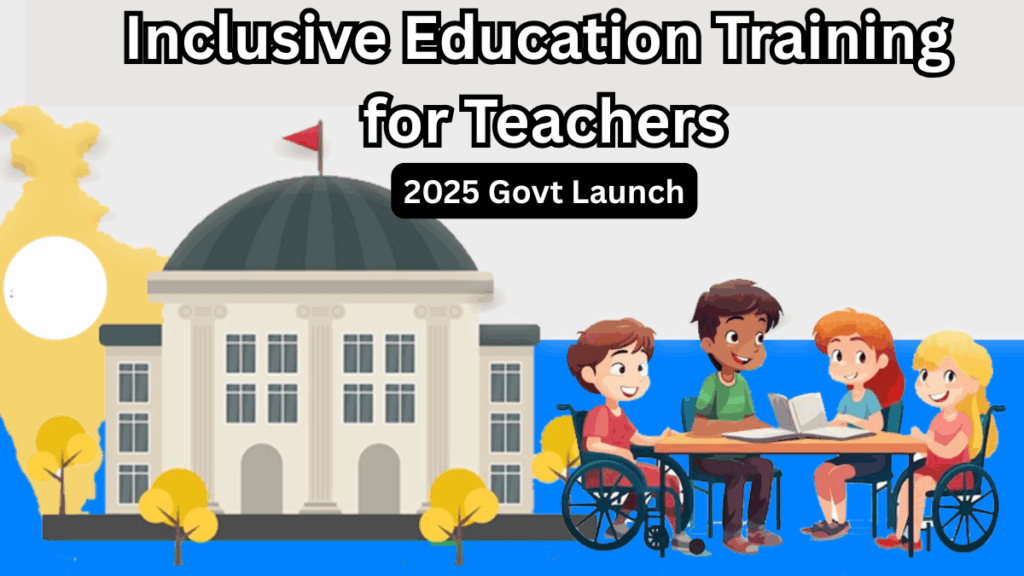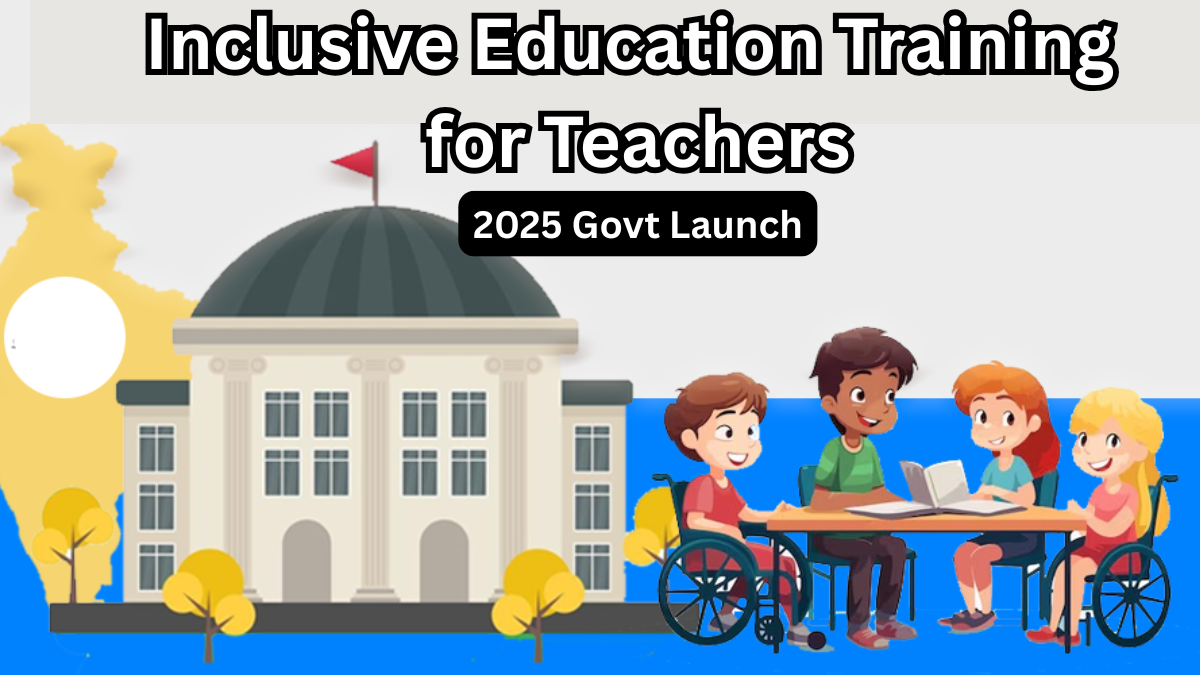The Government of India has taken a significant step forward in promoting an inclusive learning environment by launching the Inclusive Education Scheme 2025. This initiative aims to equip teachers with the knowledge, skills, and confidence needed to support students with diverse learning needs. With special needs training now a priority, schools across the country are preparing to create classrooms that are accessible, engaging, and supportive for all learners.

Key Features of the Inclusive Education Scheme 2025
The Inclusive Education Scheme 2025 focuses on empowering teachers to address the varied requirements of students with disabilities or learning differences. Here are some of its main highlights:
-
Comprehensive Teacher Training: Teachers will receive hands-on training in inclusive teaching strategies, classroom management, and adaptive learning tools.
-
Special Needs Awareness: Emphasis on understanding different disabilities, behavioral challenges, and effective interventions.
-
Curriculum Adaptation: Guidance on modifying teaching methods and learning materials to accommodate all students.
-
Assessment Techniques: Training on inclusive assessment strategies that fairly evaluate students’ progress.
Benefits of Special Needs Training for Teachers
Providing special needs training for educators has multiple advantages for both teachers and students:
-
Enhances teacher confidence in handling diverse classrooms.
-
Promotes empathy and understanding among peers.
-
Improves student participation and learning outcomes.
-
Creates a safe, nurturing, and stimulating learning environment.
Training Structure under the Inclusive Education Scheme 2025
The government has designed a flexible training structure that caters to teachers across various levels of education.
| Training Component | Duration | Key Focus Areas |
|---|---|---|
| Foundation Module | 2 weeks | Basics of inclusive education, understanding disabilities, classroom adaptations |
| Advanced Module | 4 weeks | Specialized teaching strategies, assistive technologies, assessment methods |
| Practical Workshop | 1 week | Hands-on sessions, peer collaboration, case studies |
| Continuous Support | Ongoing | Mentorship, online resources, refresher courses |
How Schools Can Implement the Program
Implementation of the Inclusive Education Scheme 2025 is straightforward and structured:
-
Teacher Enrollment: Schools nominate teachers for training based on their subjects and experience.
-
Training Participation: Teachers attend online and offline workshops, completing both theoretical and practical modules.
-
Monitoring & Feedback: Teachers receive ongoing support, and student outcomes are monitored to ensure program effectiveness.
-
Continuous Learning: Refresher courses and specialized modules are offered periodically to keep teachers updated.
FAQs
Q1: Who is eligible for the inclusive education training?
A1: Teachers from government and private schools across primary, secondary, and higher secondary levels are eligible. Priority is given to teachers working in special education or inclusive classrooms.
Q2: Is the training free under the Inclusive Education Scheme 2025?
A2: Yes, the government covers all costs, including training materials and online resources.
Q3: Will teachers receive a certification after completing the program?
A3: Yes, certified teachers will receive a government-recognized certificate upon successful completion, which can enhance their professional credentials.
Q4: How does special needs training improve student outcomes?
A4: Trained teachers can better adapt lesson plans, provide personalized support, and create an inclusive classroom, leading to higher engagement and improved learning results for all students.
Conclusion
The Inclusive Education Scheme 2025 marks a milestone in making education accessible for every child. With special needs training, teachers are better equipped to create classrooms where diversity is celebrated and every student can thrive.
Click here to learn more
